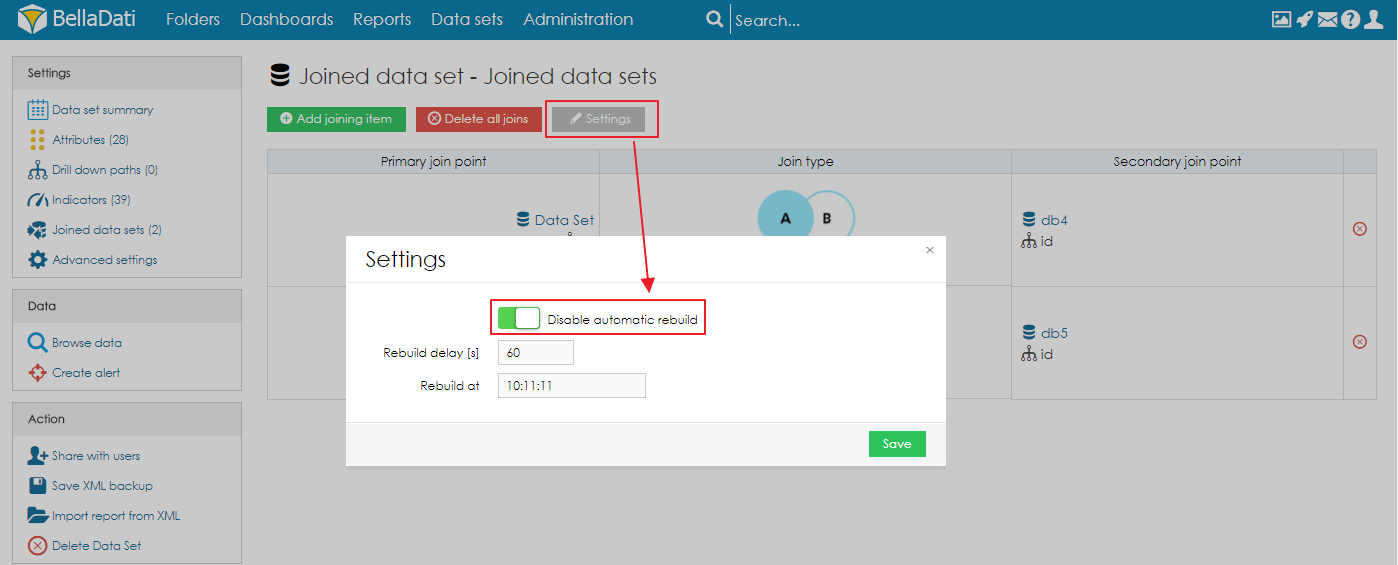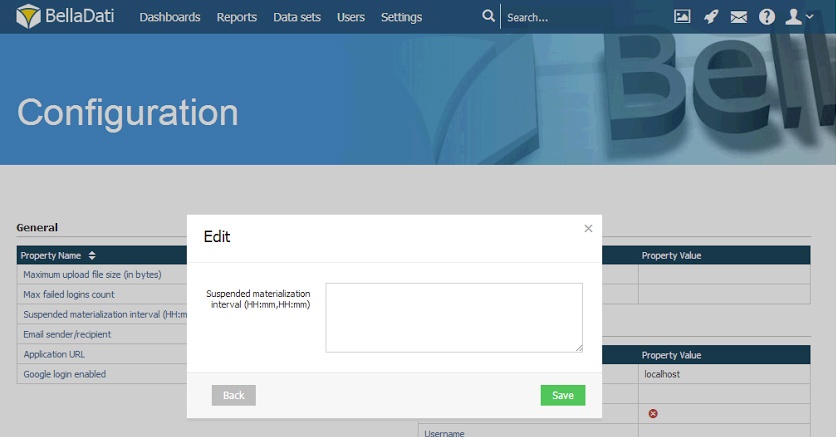Page History
...
| Sv translation | ||||||||||||||||
|---|---|---|---|---|---|---|---|---|---|---|---|---|---|---|---|---|
| ||||||||||||||||
データセットの構築過程はデータセット内(自動再構築の有効化の時)でまたはユーザーによって手動で、データや構成変更により引き起こされます。構築過程の中で、すべての参照データセットは実行変更のためロックされます。 Building process of data sets is triggered by the data or structure change in the underlying data sets (when automatic rebuild is enabled) or manually by user. During the building process, all referenced data sets are locked for performing changes. Any changes done to the underlying data sets (Changing joins structure, changing data, etc.) will cause, that the join is flagged as needed to be rebuilt, but the rebuild itself is not scheduled. When the joined data sets is flagged as needed to be rebuilt, the existing materialized view in the back end database is invalidated and only the data preview will be displayed (by default 10 000 rows). Once the rebuilding is finished, all (updated) data will be again available.
構築プロセスの無効化特定のデータセットのプロセスを無効にする特に「大きな」データセットで、構築プロセスを自動的に開始したくない場合があります。結合されたデータセットの設定で自動再構築を無効にすることができます: 特定の時間間隔ですべてのデータセットのプロセスを無効にする
この特定の例では、例えば日々更新されたデータセットに構築されたたくさんの結合データセットがある場合、データセットのそれぞれの変化は構築過程を引き起こします。システムが、結合の一部である他の参照データセットにデータを取り込もうとするとき、「ロック」エラーを起こす可能性があります。この場合、特定の時間インターバルにおいて構築過程を無効化できます: Building process of data sets is triggered by the data or structure change in the underlying data sets (when automatic rebuild is enabled) or manually by user. During the building process, all referenced data sets are locked for performing changes. Any changes done to the underlying data sets (Changing joins structure, changing data, etc.) will cause, that the join is flagged as needed to be rebuilt, but the rebuild itself is not scheduled. When the joined data sets is flagged as needed to be rebuilt, the existing materialized view in the back end database is invalidated and only the data preview will be displayed (by default 10 000 rows). Once the rebuilding is finished, all (updated) data will be again available.
Disabling the building processDisable process for particular data setThere are situations, when we don't want to start the building process automatically, especially in the "big" data sets. It is possible to disable automatic rebuild in the settings of the joined data set: Disable process for all data sets in specific time interval
In specific cases, for example if there are many joined data sets build on several daily updated data sets, each change of the underlying data set triggers the building process. It may cause "locking" errors when the system will try to import data into another referenced data set which is part of the join. For this situations, you can disable the building process for the specific time interval:
Rebuild delay and Custom Rebuild time
In some cases, it might an efficient solution to define a rebuild delay or set up a custom rebuild time. They are useful in situation when there are two or more imports to the underlying data sets scheduled to almost identical time. Without the delay, first import will trigger the rebuild. This will lock the data sets which will cause failure of the rest of the imports. By setting up a delay or a custom rebuild time, the rebuild won't be mediately triggered and all the imports will be successfully finished. By using custom rebuild time, it is possible to schedule the rebuild to a time when the load of the server is the smallest.
It is possible to set them up in the settings of the joined data set: |
...


